Presidential election candidates’ promises and the future of Sri Lanka’s economy
Dr. Bandula Gamage, James Cook University, Brisbane Australia
As Sri Lanka gears up for its upcoming presidential election, the economy has become a central issue for candidates and voters alike. The country has faced significant economic challenges in recent years, including a high debt burden, slow growth, and rising poverty levels.
In response, presidential candidates have made ambitious promises to reform the economy, reduce poverty, create jobs, and improve living standards. However, delivering on these promises requires a realistic understanding of Sri Lanka's current economic situation, lessons from international experiences, and guidelines from the International Monetary Fund (IMF).
Sri Lanka's economy teeters on the edge across all economic indicators
Sri Lanka's economy is in a precarious state. The country's debt burden is one of the highest in the world, with national debt reaching 128% of GDP in 2023. Economic growth has slowed, and the country has experienced significant economic disruptions due to global trade tensions, domestic policy uncertainty, and the COVID-19 pandemic. The economy has also been characterised by high inflation, rising unemployment, and a growing fiscal deficit.
Poverty remains a significant issue in Sri Lanka, despite progress in reducing poverty levels over the past few decades. According to the World Bank, the poverty headcount ratio at $1.90 a day (international poverty line) was 4.1% in 2022, compared to 1.7% in 2019. The COVID-19 pandemic has exacerbated poverty levels, with many families experiencing job losses and income reductions. The poverty rate is higher in rural areas, where access to education, healthcare, and other basic services is limited.
Sri Lanka's education system, once a source of national pride, has struggled to keep pace with the demands of the global economy. According to the World Bank, Sri Lanka's Human Capital Index (HCI) is 0.58, which means that children born in Sri Lanka today will be 58% as productive when they grow up as they could be if they enjoyed complete education and full health. The education system needs significant reform to better align with the demands of the global economy and to equip young people with the skills needed for the 21st-century job market.
The power and energy sector in Sri Lanka has also faced significant challenges, including frequent power cuts, high electricity costs, and a reliance on imported fossil fuels. The country's electricity generation capacity has struggled to keep up with rising demand, leading to frequent power shortages and high electricity costs for consumers. The government has made efforts to promote renewable energy, but progress has been slow, and the country remains heavily reliant on imported fossil fuels.
Sri Lanka's government sector is large, with an estimated 1.5 million employees out of a total workforce of approximately 8.5 million people. The size of the government sector has placed a significant burden on the national budget, with public sector wages and pensions accounting for a large share of government spending. The large government sector has also been criticised for inefficiency and corruption, with many public sector workers being accused of underperforming and being overpaid.
Youth unemployment is a significant challenge in Sri Lanka, with young people facing high levels of joblessness and underemployment. According to the International Labour Organisation (ILO), the youth unemployment rate in Sri Lanka was 22.8% in 2022, compared to the overall unemployment rate of 5.5%. The high youth unemployment rate is partly due to a mismatch between the skills provided by the education system and the demands of the job market. Many young people are unable to find jobs that match their qualifications, leading to high levels of underemployment and dissatisfaction with the education system.
Privatisation has been a controversial issue in Sri Lanka, with many arguing that it is necessary to reduce the size of the government sector and improve the efficiency of state-owned enterprises (SOEs). However, privatisation has also been met with resistance, with many fearing that it could lead to job losses, higher prices for consumers, and a loss of national sovereignty. Despite these concerns, there has been some progress in privatising SOEs, with several major companies being sold to private investors in recent years.
Presidential candidates' promises: A reality check
In the lead-up to the presidential election, candidates have made a wide range of promises to address the country's economic challenges. These promises include reducing poverty, creating jobs, reforming the education system, improving the power and energy sector, reducing the size of the government sector, and privatising state-owned enterprises. However, these promises need to be carefully scrutinised in light of the country's current economic situation and the lessons learned from other countries that have faced similar challenges.
Many presidential candidates have promised to reduce poverty by increasing social spending, improving access to education and healthcare, and creating jobs. However, reducing poverty is a complex challenge that requires more than just increasing social spending. It requires a comprehensive approach that includes improving economic growth, creating jobs, and ensuring that the benefits of growth are widely shared.
Creating jobs is another common promise made by presidential candidates. However, creating jobs in a sustainable way requires a strong and growing economy, as well as a well-functioning education system that provides young people with the skills they need to succeed in the job market. Candidates must be realistic about the challenges of creating jobs in a slow-growing economy and must focus on policies that promote economic growth and job creation.
Reforming the education system is a priority for many presidential candidates, who have promised to improve the quality of education and better align it with the demands of the global economy. However, education reform is a long-term process that requires significant investment in teacher training, curriculum development, and infrastructure. Candidates must be realistic about the time and resources needed to achieve meaningful education reform.
Improving the power and energy sector is another common promise made by presidential candidates. However, the challenges in this sector are significant, including the need to increase electricity generation capacity, reduce reliance on imported fossil fuels, and promote renewable energy. Candidates must be realistic about the time and resources needed to achieve these goals and must focus on policies that promote sustainable energy development.
Reducing the size of the government sector is a priority for many presidential candidates, who have promised to reduce public sector wages and pensions, improve efficiency, and reduce corruption. However, reducing the size of the government sector is a complex challenge that requires careful planning and execution. Candidates must be realistic about the challenges of reducing the size of the government sector and must focus on policies that promote efficiency and transparency.
Privatising state-owned enterprises is another common promise made by presidential candidates. However, privatisation is a complex and controversial process that requires careful planning and execution. Candidates must be realistic about the challenges of privatisation and must focus on policies that promote efficiency and transparency while protecting the interests of consumers and workers.
Lessons from abroad: A cautionary tale
Countries such as Argentina, Greece, and Zimbabwe offer valuable lessons for Sri Lanka. All of these countries faced economic crises similar to those faced by Sri Lanka, and their experiences highlight the dangers of populist promises that are not backed by sound economic policies.
Argentina is a prime example of the dangers of populist promises that are not backed by sound economic policies. For years, the country faced an economic crisis due to populist policies, unsustainable debt, and runaway inflation. In the early 2000s, Argentina defaulted on its debt, leading to a severe economic crisis that left millions of people in poverty. The country's experience highlights the dangers of making ambitious promises without the economic foundation to support them.
Greece offers another cautionary tale. The country's economic crisis in the late 2000s was caused by unsustainable debt, a bloated public sector, and a failure to implement necessary economic reforms. Greece was forced to seek a bailout from the IMF and the European Union, which required the country to implement harsh austerity measures. While these measures helped stabilise the economy, they also led to a deep recession and widespread social unrest. Greece's experience highlights the importance of balancing short-term economic relief with long-term fiscal responsibility.
Zimbabwe is another example of the dangers of populist policies that are not backed by sound economic principles. The country's economic crisis in the early 2000s was caused by a combination of land reforms, hyperinflation, and a lack of fiscal discipline. Despite promises of economic reform, the country's economy has remained in a state of crisis, with high levels of poverty and unemployment. Zimbabwe's experience highlights the dangers of making ambitious promises without the economic foundation to support them.
IMF's blueprint for Sri Lanka: Key guidelines for economic stability and sustainable growth
In light of these international experiences, the IMF has provided guidelines for Sri Lanka's economic reform. These guidelines are designed to help stabilise the economy, reduce poverty, and promote sustainable development. The key recommendations from the IMF include the following:
Fiscal consolidation - The IMF has recommended that Sri Lanka focus on fiscal consolidation to improve its fiscal sustainability. This includes reducing the fiscal deficit, increasing government revenue, and ensuring debt sustainability. In 2023, Sri Lanka's fiscal deficit was 9.6% of GDP, one of the highest in the world. To address this, the IMF has emphasised the need to broaden the tax base, streamline tax administration, and reduce unnecessary subsidies.
Monetary policy and inflation control - Monetary policy plays a crucial role in controlling inflation and maintaining economic stability. The IMF has recommended that Sri Lanka adopt a more prudent monetary policy to control inflation and ensure price stability. This includes tightening monetary policy when necessary, improving the transparency of monetary policy decisions, and enhancing the independence of the central bank.
Structural reforms - Structural reforms are essential for promoting long-term economic growth and development. The IMF has recommended that Sri Lanka focus on structural reforms to improve the efficiency of the economy, promote competition, and enhance the business environment. This includes reforming the public sector, improving the efficiency of state-owned enterprises, and promoting private sector development.
Social safety nets - The IMF has emphasised the importance of social safety nets in protecting vulnerable populations and reducing poverty. This includes improving access to education, healthcare, and other basic services, as well as providing targeted support to vulnerable groups. The IMF has also recommended that Sri Lanka improve the targeting of social safety nets to ensure that they reach those who need them most.
Environmental sustainability - Environmental sustainability is a key priority for the IMF, and the organisation has recommended that Sri Lanka focus on promoting sustainable development. This includes reducing reliance on fossil fuels, promoting renewable energy, and improving environmental protection. The IMF has also emphasised the importance of integrating environmental sustainability into economic policy decisions.
How presidential candidates can shape Sri Lanka's economic future with IMF guidelines?
As Sri Lanka approaches its presidential election, the economy will remain a central issue for candidates and voters alike. The promises made by presidential candidates are ambitious, but they must be grounded in a realistic understanding of the country's current economic situation and the lessons learned from international experiences. The IMF's guidelines provide a valuable framework for economic reform, but it is up to the next president to implement these recommendations in a way that promotes sustainable development, reduces poverty, and improves living standards for all Sri Lankans.
Ultimately, the future of Sri Lanka's economy will depend on the ability of the next president to balance short-term economic relief with long-term fiscal responsibility, promote economic growth, and ensure that the benefits of growth are widely shared. The challenges are significant, but with the right policies and leadership, Sri Lanka can build a stronger, more resilient economy that benefits all of its citizens.
-
Still No Comments Posted.



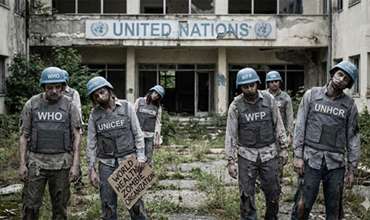


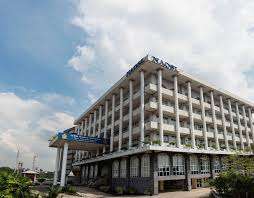
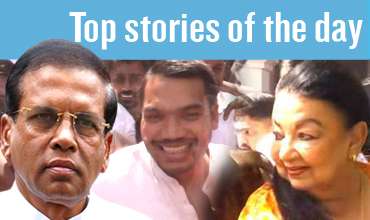

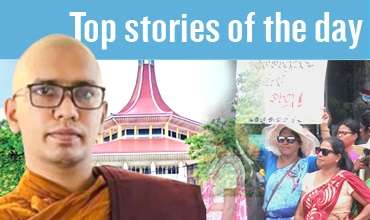

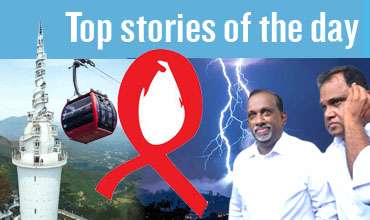


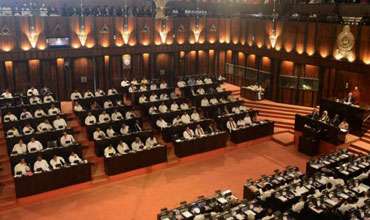

Leave Comments